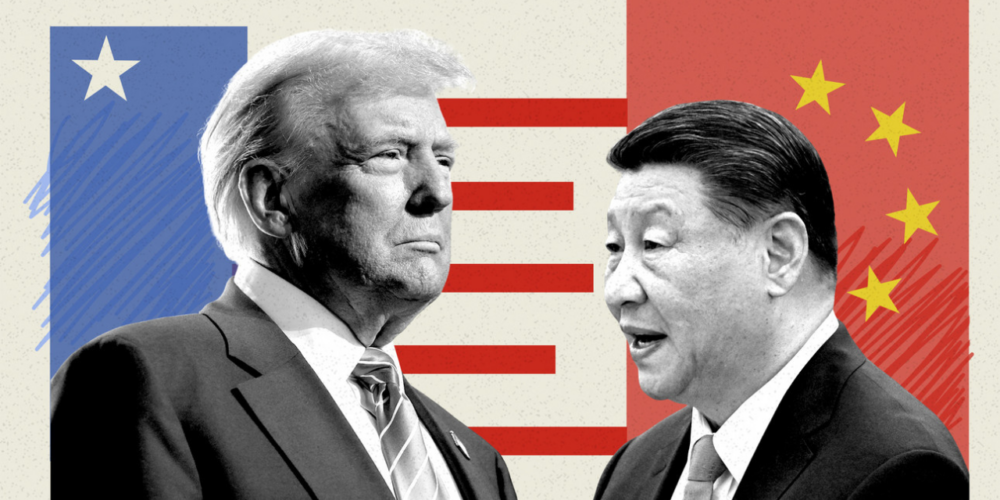China’s economy is now 23% larger than the US according to the IMF. China is the largest trading partner with Africa, the Middle East, Latin America, Japan and third largest to the EU. The Belt and Road Initiative has gone from strength to strength since 2013 and is the centrepiece of Chinese foreign policy, promising investment in key infrastructure without political or military interference that was and is a hallmark of US investment abroad. Investment without the “Washington consensus” imposed.
China has pioneered the concept of the “ecological civilisation”, placing sustainability and, indeed, ecological renewal at the centre of economic and social development popular with many countries currently facing the extremes of climate change. This stands in stark contrast to the US, where banks have withdrawn from “green sustainability goals” and have minimal green targets besides. Indeed, some US States were even pursing legal actions against banks which lent at more favourable rates to carbon-reducing businesses, arguing it was discrimination against polluters!
The US makes clear in their foreign policy strategy documents, available for all to see, that their priority is US interests at home and abroad:
[O]ur goal is to protect United States vital national interests, as articulated in the four pillars of the 2017 National Security Strategy of the United States of America (NSS). We aim to: (1) protect the American people, homeland, and way of life; (2) promote American prosperity; (3) preserve peace through strength; and (4) advance American influence … United States policies are designed to protect our interests and empower our institutions
The NSS demands that the United States “rethink the policies of the past two decades – policies based on the assumption that engagement with rivals and their inclusion in international institutions and global commerce would turn them into benign actors and trustworthy partners. For the most part, this premise turned out to be false.
The CCP has chosen instead to exploit the free and open rules-based order and attempt to reshape the international system in its favor … The CCP’s expanding use of economic, political, and military power to compel acquiescence from nation states harms vital American interests and undermines the sovereignty and dignity of countries and individuals around the world.
The United States is committed to rebalancing the United States-China economic relationship.
Clearly, no other country is allowed to expand its economic reach or present a viable alternative for countries to “partner” with. The US will not allow this. During the first Cold War, levels of US and Soviet interconnection were very low. There was virtually no trade or labour/supply chain integration. Today’s conflict between the US and China is significantly different. Trade, debt, technology, labour and supply chains are all heavily integrated between the two economies and major corporations. Chinese students even represent the largest cohort of foreign students in the US today. This makes this new Cold War, driven by the US, significantly different and more complex.
Recognising that the US establishment is highly class conscious, strategic and well organised, we can see the shift in Trump policy with regard both Russia and China as both deliberate and strategic. In order to refocus the US on its primary enemy, China, and prepare for the economic warfare being unleashed currently, the US arguably wants to isolate China and neutralise its potential allies. Hence, the Trump regime is seeking to resolve the Russia-Ukraine war, recognising some of the claims of the Russian state, perhaps to bring them closer to the US and away from China. Even with regard to Europe, you can view the announcement of massive tariffs, and then the pause on same, as a scare tactic reminding Europe which side they should be on.
Thus, rather than seeing Trumps moves as random, or even idiotic, we should view them in the context of the US’ new Cold War against China.






